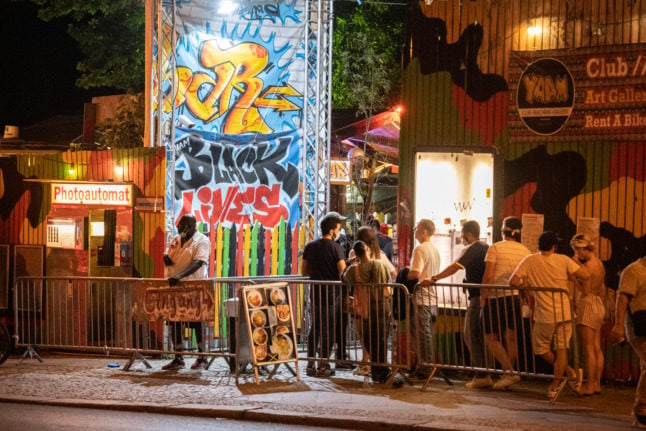As one of the last sectors to return to full operation, clubs should be able to benefit from the new policy from this weekend, the Berlin government said in a statement, with a mask requirement also falling away.
Some venues began welcoming guests in outdoor space this summer while requiring proof of vaccination, recovery or a current negative Covid-19 test as well as mask wearing.
By allowing clubs to open doors to their indoor spaces as well as open-air areas, the Berlin government is complying with a judge’s order, said the city’s top health official, Dilek Kalayci.
The administrative court had ruled on August 20th that the city’s previous ban on public dance events in response to the pandemic could not stay in place for the vaccinated and recovered.
The reopening, which comes as infection rates rise again in a fourth wave of the outbreak, will also apply to the city’s popular saunas, hammams and thermal baths.
It marks a slight shift towards a ‘2G’ rule in certain venues – meaning only vaccinated (geimpft) or genesen (recovered) people are allowed in.
This strategy was introduced in Hamburg last Friday, effectively preventing people who haven’t been jabbed (or recently recovered from Covid) from accessing several areas of public life.
READ ALSO: How did Hamburg’s first ‘vaccine only’ weekend go?
However, Berlin is still some away from a blanket 2G rule: for the time being at least, other venues like restaurants and cafeterias will be sticking to a 3G rule, meaning managers will be required to “review proof of testing, vaccination or recovery and bar those without such proof from entering”.
Infections rising
The number of infections in Germany has climbed steadily since early July to reach 74.8 per 100,000 people over the last seven days, with just over 60 percent of the eligible population fully vaccinated.
Berlin’s infection rate is slightly lower at 72.2 per 100,000, with 60 percent of the population vaccinated.
The German government has ruled out a blanket vaccination requirement but increasingly turned to a strategy of introducing restrictions for those who refuse to get a Covid-19 jab.
READ ALSO: Motivation to get vaccinated or coercion? Mixed views on Germany’s plan to charge for Covid tests
Berlin’s world-famous dance clubs pumped 1.5 billion euros ($1.8 billion) into the local economy in 2018 alone, according to a study by the Club Commission, which represents the sector’s interests. They did this by attracting an estimated three million tourists from across Europe and around the world.
In response to the threat to the sector posed by the pandemic as well as gentrification, the German parliament in May reclassified clubs and live event venues as cultural institutions, meaning they have the same legal protections as museums and concert houses.



 Please whitelist us to continue reading.
Please whitelist us to continue reading.
Member comments